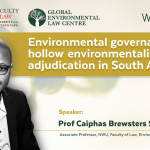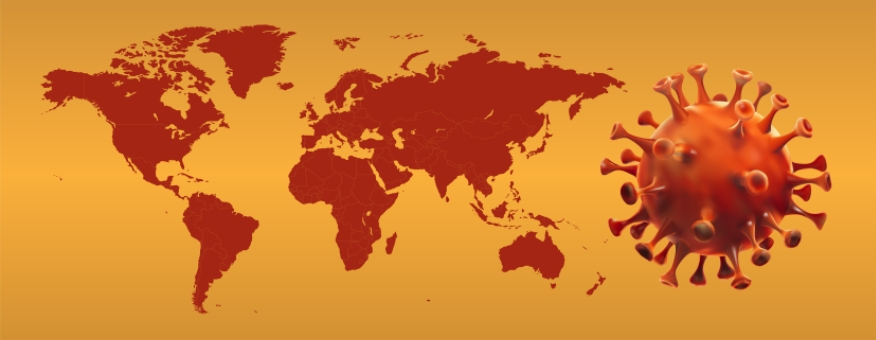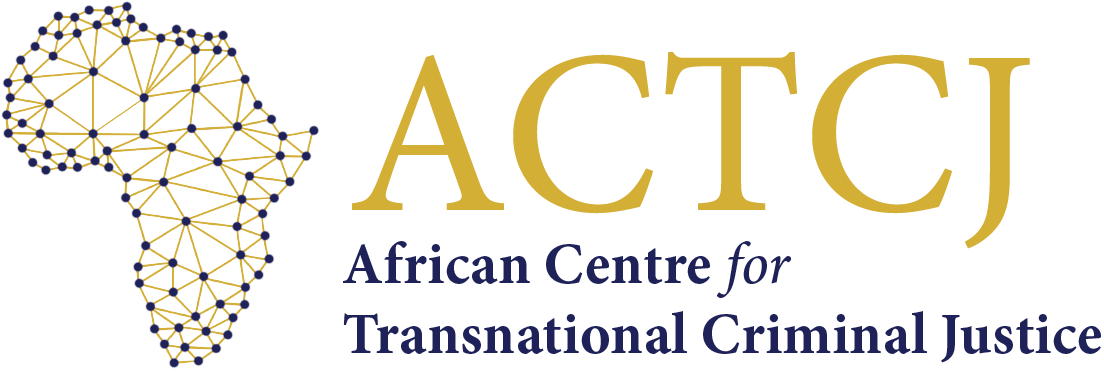
Environmental governance, hollow environmentalism and adjudication in South Africa
June 2, 2023
CLIA wins NRF Human and Social Dynamics In Development Grant
July 11, 2023
Reflections on transitional justice in Africa during Covid-19
The Covid-19 pandemic has exerted enormous human and socio-economic costs on countries around the world. Countries responded to the pandemic with a range of crisis and disaster management measures varying in their degree of severity.
Relatively stable countries in Africa have had to confront the pandemic as a health emergency, but countries emerging from conflicts and authoritarian regimes on the continent had to confront the pandemic both as a health crisis and a human rights and social justice issue within an ongoing transitional justice process. These countries were already grappling with severe institutional challenges and rule of law deficit and a transitional justice process that is still very much work-in-progress and the situation been made more acute by the pandemic.1
Responding and managing the pandemic at a time when transitional justice countries are also struggling with other structural challenges like electoral reform, constitutional reform and the efforts to implement peace agreements all at the same have combined to expose, and in some cases, exacerbate pre-existing ‘social, political and economic problems deeply rooted in historical inequality, exclusion, human rights violations and injustice.’2 In deciding how best to respond post-pandemic, it is imperative to first assess the pre- and pandemic experiences of the different transitional justice countries.
Just as transitional justice processes in different countries vary so does the impact of Covid-19 on the implementation of transitional justice. In some cases, like South Sudan which has been in the throes of an epileptic transitional justice process, the Covid-19 pandemic could further endanger progress.
One of the immediate impacts of the pandemic in South Sudan for example was the suspension of the transitional justice process such that, perhaps the most urgent task before stakeholders, post-pandemic would be how to ensure that the setbacks suffered brought about by the pandemic do not become a permanent feature of the transitional justice process.
Secondly, that post-pandemic, stakeholders would need to ensure that the pandemic is not allowed to produce domino effects that could reverse the gains already recorded in addressing past human rights abuses through accountability and reconciliation.3 In the Gambia on the other hand, authorities have managed to continue to pay out reparations to victims.4 Such payments could become a critical lifeline for survivors who are still dealing with the trauma of past atrocities and abuses and but only to now be faced with the impact of the a pandemic.
There is no hard and fast rule on how best transitional justice societies can respond to the pandemic and also keep the transitional justice process on track. Each transitional society will have to be dealt with on a case-by-case basis. As a commentator noted in respect of Libya for example, ‘insecurity and political fragmentation, combined with a weakened health care system, create unique challenges when addressing COVID-19 in Libya. Nonetheless, the protection of human life and upholding human rights in line with international legal obligations must remain a primary concern’.5
In addition, other factors will have to be considered. For example, how the victims responded to the pandemic, their coping strategies and mechanisms, the severity of past atrocities or oppression, what community support structures exist and what resources are available from authorities and stakeholders will vary from one transitional justice society to another. However, they can be useful indicators of where support is needed to support existing local instantiates to build resilience and adaptability and capacity to respond to new and immediate challenges in an on-going transitional justice process post-pandemic.
This means that an assessment of each situation is necessary. The history and context of each situation will be vital in formulating appropriate interventions by agencies to support existing local and community initiatives and make them more effective in order to strengthen the overall transitional justice process. As Mark Freeman argues, accountability is very important but that should not rule out the possibility of amnesty as an inevitable tool of last resort to end a conflict and stop further human misery in certain circumstances.6 As noted by the Chair of the AU Commission in his foreword to the AU Transitional Justice Policy ‘It [the AU] … held the view that the dogmatic pursuit of justice, as promoted by some … with an exclusive focus on its criminal dimension and a selective disregard of local context, was the surest path to sustaining violence. Eventually, such approaches brought neither peace nor justice.’
At the same time, it must be emphasised that justice for the victims cannot play second fiddle to the need to end a conflict. Any transitional justice process that sets out fixated on granting amnesties to perpetrators of atrocity crimes run the risk of denying justice to victims and society and entrenching impunity. All the tools will have to be considered and a carefully calibrated appropriate response determined by the unique context designed and implemented.
At the end, what is essential is that, a holistic assessment of the impact of the pandemic on transitional justice process in each country will be necessary to guide the formulation of appropriate intervention because a one-size-fits-all will most likely be counter-productive. After all, the AU hinge its justice processes regional policy on a set of continental standards for member states to develop their context-specific national justice process focusing on ‘comprehensive policies, strategies and programmes towards democratic and socio-economic transformation, and achieving sustainable peace, justice, reconciliation, social cohesion and healing’. This is even more relevant in a post-pandemic situation.
Such context-specific analysis will have to take account of how each country has responded to the Covid-19 within its transitional justice process. As noted above, an assessment of how victims themselves have been impacted and responded to it, and how they have responded to the impact of government’s intervention as well will be crucial. Practitioners who are already thinking of post-pandemic action on stalled transitional justice process would do well to reflect on pertinent questions such as what stage was the transitional justice process before it was suspended, what transitional justice mechanisms are involved: public hearings and truth-telling, investigations, reparation etc?
In conclusion, the key challenge for stakeholders—citizens, civil society groups, government, development partners—is how to ensure that they do not lose sight of the key outcomes the transitional justice process was intended to produce— justice and reconciliation. The process ideally should aim at ending human rights abuses and violations of international humanitarian law while ensuring accountability and justice for the victims. This should remain a top priority in the design and implementation of the democratic and development agenda in an extremely difficult time and context post-pandemic. There may not always be consensus on what justice means, or how best to achieve it, and in fact, in some cases may very well be contested; but the context will determine how the different elements—victim-participation, representation, access, compensation and many more combine to shape the overall success of the transitional justice process while mitigating the impact of Covid-19 on victims of past human rights abuses post-pandemic.
Endnotes
1. Paul Seils Libya: Conflict and Human Rights in the Time of a Pandemic- A Symposium. 4 May 2020. Available at https://www.libyanjustice.org/news/libya-conflict-and-human-rights-in-the-time-of-a-pandemic-a-symposium. (Last accessed 24 February 2021).
2. IDEA (2020) Transitional Justice and Social Cohesion (re)Construction in African Countries during the Covid-19 Pandemic Analytical Report Webinar, 18 June 2020. Available at https://www.idea.int/publications/catalogue/transitional-justice-and-social-cohesion-reconstruction-african-countries. (Last accessed 24 February 2021), p5.
3. His Excellency, Ambassador Minata Samate Cessouma, African Union Commissioner for Political Affairs, Welcome Remarks at the Virtual Meeting on ‘Covid-19 Pandemic: Challenges and Opportunities for Transitional Justice in Africa, 3 June 2020, p2.
4. IDEA (2020) Transitional Justice and Social Cohesion (re)Construction in African Countries during the Covid-19 Pandemic Analytical Report Webinar, 18 June 2020.
5. Ibid.
6. Mark Freeman Necessary Evils: Amnesties and the Search for Justice (2010) Cambridge: Cambridge University Press.
